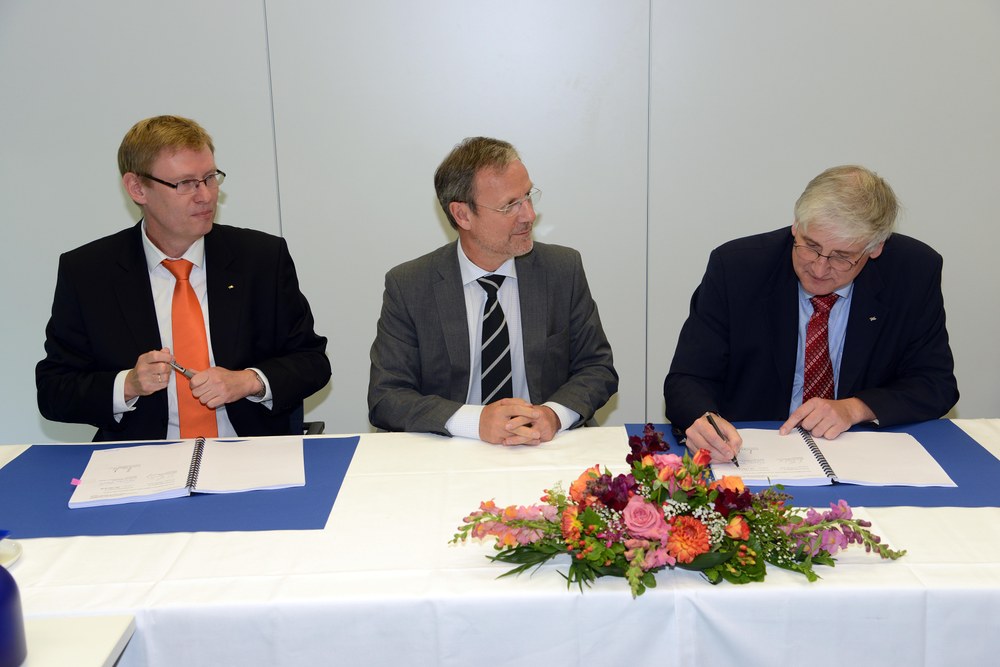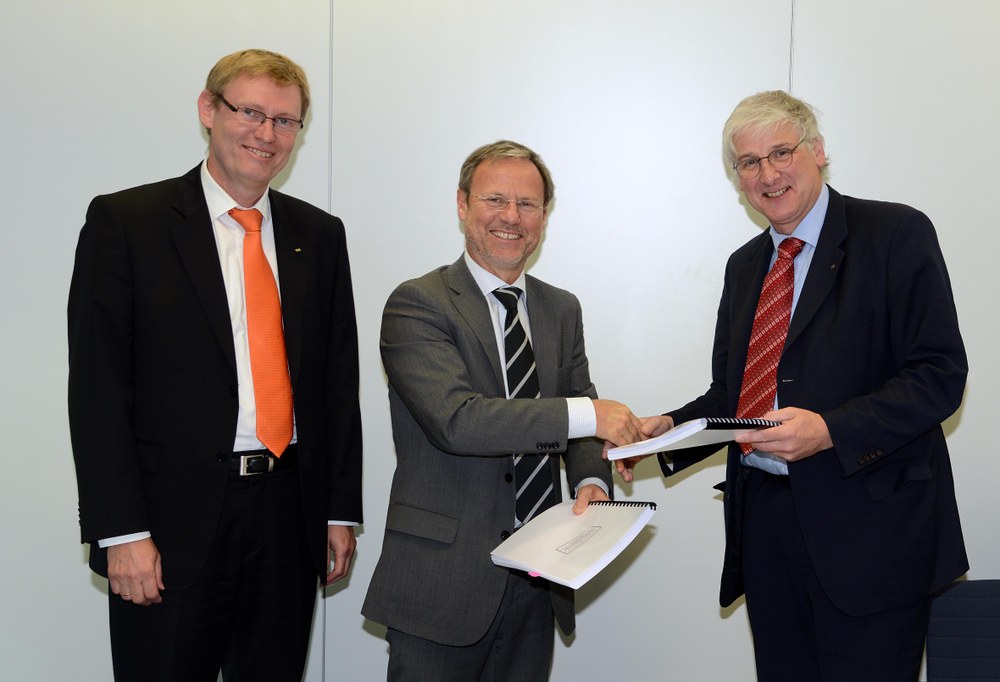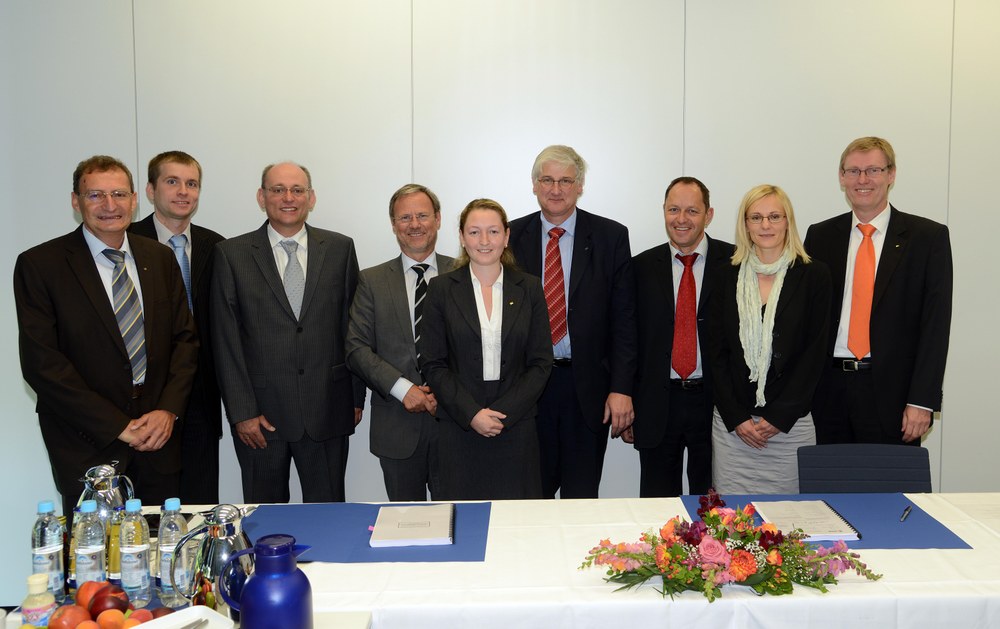European data center for GMES Sentinel satellites at DLR


The ground segment for GMES (Global Monitoring for Environment and Security) is starting to take shape: The German Remote Sensing Data Center (DFD) of the German Aerospace Center (DLR) in Oberpfaffenhofen will be the European data center for GMES satellites Sentinel-1 and Sentinel-3.
“The expertise available at DLR in earth observation and data processing is fundamental for the successful establishment of the European data center planned by ESA,” explained Prof. Hansjörg Dittus, DLR management board member responsible for space research and technology.
On 24 July the director of the earth observation program of the European Space Agency ESA, Prof. Volker Liebig, DLR’s Prof. Hansjörg Dittus, and the director of DFD, Prof. Stefan Dech, signed a contract in Oberpfaffenhofen to establish a GMES Processing and Archiving Center (PAC).
“Because of its unique combination of research and engineering abilities, DLR has been a reliable partner of ESA for many years in designing and operating complex systems for the reception, processing and archiving of earth observation data,” emphasized Prof. Liebig.
Starting already in 2013, data from Sentinel-1, and later also data from the land and ocean sensor on the Sentinal-3 satellites (the Ocean and Land Color Imager, OLCI) will be processed to yield information products, distributed to users, and archived long-term. ESA is providing 13.6 million euro over seven years to establish and operate the data center. This new GMES data center is to a large extent based on existing infrastructure. The existing computer setup and national data archive at DLR will be expanded in the coming months in order to handle the additional data requirements of over two petabytes (1 petabyte = 1 quadrillion) of data to be processed annually. The T-Systems company was awarded a subcontract to enlarge the network infrastructure.
Satellite data independent of weather and time of day
The radar instruments on the Sentinel-1 satellites will collect data globally from the earth’s land surface and oceans, independent of cloud cover and time of day. With the Sentinel-1 satellites the polar ice caps can be completely monitored, oil spills in the oceans can be identified, and floods and other natural disasters rapidly mapped over large areas.
The land and ocean sensor on the Sentinel-3 satellites can acquire data from the entire earth surface within two days, using 21 spectral channels and with a ground resolution of 300 meters. This will provide important parameters of global change relating to vegetation dynamics, water quality and the carbon cycle.
“Data sets of this quality collected over several decades will supply fundamental information for understanding the dynamics of the geosphere and addressing urgent global problems,” explained Prof. Dech.
Data from the Sentinel satellites will arrive at the GMES data center in Oberpfaffenhofen from the reception stations via high-speed networks. For urgent applications, for example, to detect oil spills on the oceans or to map sea ice for ship navigation, DFD is planning to directly receive Sentinel data at its reception station in Mecklenburg-Vorpommern and from its receivers in Canada, Mexico and Antarctica.
In addition, DLR in Oberpfaffenhofen is participating in the establishment of a “European Data Relay System” (EDRS), which will in the future permit reception of earth observation data also via geostationary relay satellites.
Sentinel-1 and Sentinel-3 continue the earth observation efforts which began in Europe in 1991 with the ESA satellites ERS-1, ERS-2 and ENVISAT. The German Remote Sensing Data Center (DFD) has also been working on behalf of ESA since 1991 as a processing and data center for these first European earth observation satellites.

